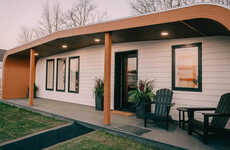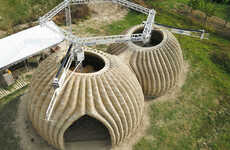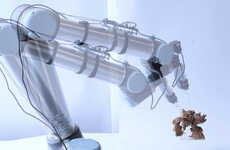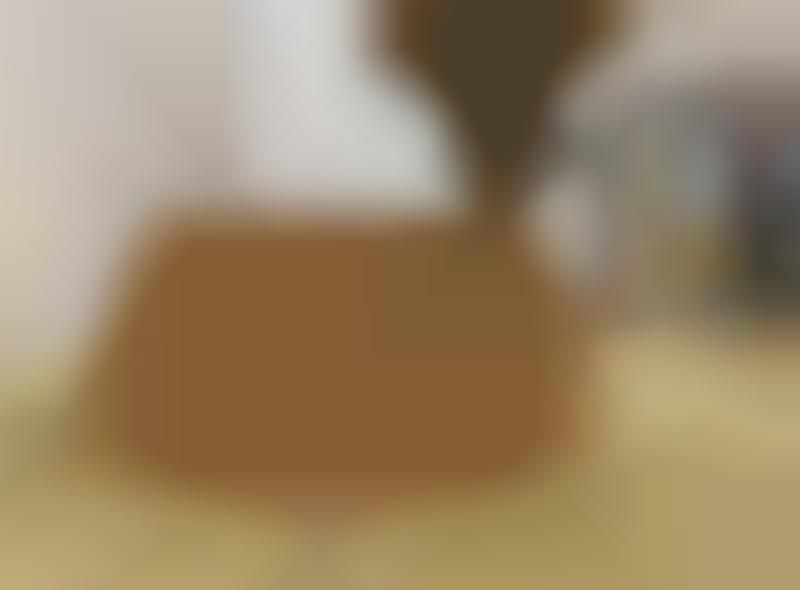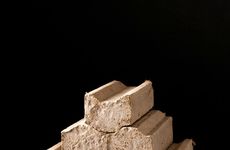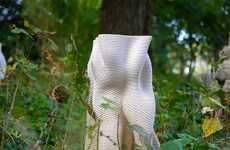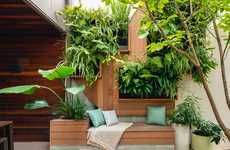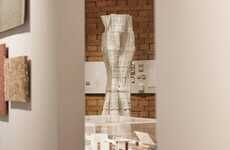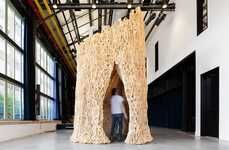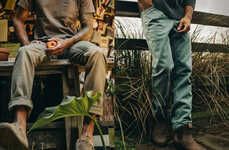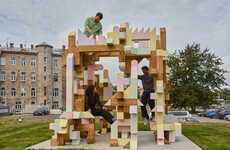
University of Virginia Researchers Develop a Groundbreaking Method
References: virginia.edu & dezeen
University of Virginia researchers have developed a groundbreaking method for effortlessly fusing man-built structures and nature—a 3D-printed living soil wall. The early prototypes of this begin with the appearance of "ordinary raw-earth structures." However, in the course of a few days, the "sprout and become covered in greenery." This is because the soil is impregnated with seeds.
The researchers expect that this method will serve to create beautiful walls and roofs that "teem with plant life." Given the obsession of the contemporary consumer to infuse their homes, offices, and other public spaces with greenery—which balances the fast-paced, industrial vibe of the city—the 3D-printed living soil wall can be an efficient and effortless way for architects and designers to go about this. In addition, this building strategy can be more sustainable as well, reducing the need for emissions-intensive building materials.
Image Credit: Ehsan Baharlou
The researchers expect that this method will serve to create beautiful walls and roofs that "teem with plant life." Given the obsession of the contemporary consumer to infuse their homes, offices, and other public spaces with greenery—which balances the fast-paced, industrial vibe of the city—the 3D-printed living soil wall can be an efficient and effortless way for architects and designers to go about this. In addition, this building strategy can be more sustainable as well, reducing the need for emissions-intensive building materials.
Image Credit: Ehsan Baharlou
Trend Themes
1. Living Soil Technology - The combination of 3D printing and living soil creates opportunities for eco-friendly and sustainable architecture.
2. Green Infused Spaces - With the growing trend of incorporating greenery into living and working spaces, 3D-printed living soil walls offer a natural and effortless way to integrate plant life.
3. Sustainable Building Materials - By reducing the need for emissions-intensive building materials, the use of living soil walls can provide an alternative solution for sustainable architecture.
Industry Implications
1. Architecture - The use of living soil walls in architecture presents an opportunity for integrating sustainable practices with innovative design.
2. Construction - The use of living soil walls in construction can lead to more eco-friendly and sustainable building practices while still providing structural stability.
3. Interior Design - Living soil walls offer an innovative way to bring a natural element into interior design while promoting sustainable and eco-friendly practices.
6.9
Score
Popularity
Activity
Freshness



